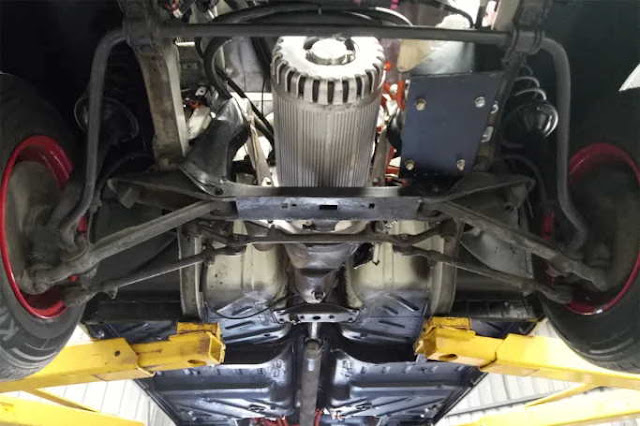Government of India issues new notification on the rules for retrofitting electric kit in vehicles. The Retrofitment of hybrid electric syst...
Government of India issues new notification on the rules for retrofitting electric kit in vehicles.
The Retrofitment of hybrid electric system kit to vehicles which were originally having a GVW not exceeding 3,500 kg. This shall be permitted if it originally conformed to Bharat Stage-II or subsequent emission norms.
To curb vehicular pollution, the government has notified rules for retrofitment of hybrid electric system, or electric kit, for vehicles. This applies to the vehicles that meet emission norms and are run on either diesel or gasoline only.
The Retrofitment of hybrid electric system kit to vehicles having Gross Vehicle Weight not exceeding 3,500 kg shall be permitted if it conforms to Bharat Stage-II or subsequent emission norms, if it was not retrofitted earlier
Ministry of Road Transport and Highways said in the notification.
It is also know that converting older vehicles into electric ones is not an economically viable option. As the kits are expensive due to low production numbers and hard to source/manufacture due to less demand.
The new rule mentions that the installation of type approved hybrid electric system kit shall be done only by an installer authorised by the manufacturer or supplier of such kits. It also stipulated that the kit manufacturer or supplier shall obtain the type approval certificate from a specified test agency and such certificate will be valid for three years from the date of issue.
However, the question, of how viable this option will be, is something which cannot be ignored. At SIAM 2nd National Workshop on FAME India, held on Friday, Kavan Mukhtyar, Partner - Advisory, PwC India said:
Technically, it is a complicated option to convert an older vehicle into an electric vehicle. The procedure of retrofitment is possible, but the cost will be quite substantial.
Moreover, there are certain other elements also like looking at the safety of the vehicle which makes the task further challenging. Mukhtyar further added,
This process will make more sense for institutions, companies, government entities, etc who have large fleet of vehicles. For an individual owner, this is going to be a costly affair as the procedure will cost somewhere around 40 percent more than the vehicle.
However, he was quick to ensure that
If someone thinks out of the box and come up with innovative solutions, it can be done. Overall it is a tough challenge to overcome; technically possible but economically not viable.
The ministry has notified that the policy will cover both commercial and passenger vehicles and the government will give certificates of discounts to people who voluntarily scrap their old vehicles.
The idea of retrofitting the electric drive-train replacing existing polluting internal-combustion engine (in short ICE)drive-trains makes perfect sense, however with respect to the economics makes a complete U-turn.
This is because the original vehicle that was designed for the ICE, could waste valuable space for the replacing EV kit, and also the re-engineering & upgrading of old vehicle is too time consuming, as the vehicle mostly would have taken quite an abuse previously and the repairs + new kit installation could surpass the replacement of the vehicle as a whole.
Even on the view of safety, it would be a no-brainer to use expensive a beaten up old vehicle. Only if the vehicle has a collector or vintage value, then the cost could be justified.






No comments